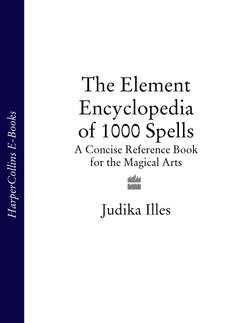Читать книгу The Element Encyclopedia of 1000 Spells: A Concise Reference Book for the Magical Arts - Judika Illes - Страница 73
The Moon
ОглавлениеThe moon is considered the ruler of all magical arts, and magic is timed to the phases of the moon:
Spells intended to increase something (like money), or intended to initiate something new (a fresh romance) are coordinated with the waxing moon. Begin these spells on or just after the New Moon
Spells intended to decrease something (like debt), or cast for the purpose of banishing (an enemy) are coordinated with the waning moon. Begin these spells on or just after the Full Moon
The Dark of the Moon, those few days where the moon is not visible, just prior to the rebirth of the New Moon, is controversial. Some traditions will not cast spells during this period. Others, particularly those devoted to Dark Moon spirits like Hecate or Lilith, consider this a period of profound magical power which may be exploited as needed
In Arabic folk custom, it’s recommended that you keep an eye on moon phases. Whatever you find yourself doing at the moment when you first catch a glimpse of the brand new moon is the right thing for you to do.
Although it doesn’t eliminate the need to charge items with personal energy, exposing virtually all magical tools, charms, and preparations to the beams of the Full Moon provides enhanced magical empowerment.
In general, although not always, magic worked with the moon herself (rather than just by timing via the phases) is women’s magic. There is a trinity between the moon, women, the ocean and, by implication, all water. The moon is recognized as having a profound effect upon menstrual cycles and the tides. It is a reciprocal arrangement: since women have a natural affinity for the moon, they may more readily draw on its power.
In many cases lunar deities are female, with Artemis, Diana, Hecate, Selene, Lady Chang’o, and Ix Chel only a few of many examples. In other cases, particularly in ancient Egypt, the moon was perceived as male, but this perception was precisely because of the moon’s perceived influence on women. The moon was seen as playing a male role. To the Egyptians, the moon was male because it was demonstrated to have profound control over women’s fertility. It was believed that pregnancy could occur from exposure to moonbeams, and who else gets a woman pregnant but a man?
